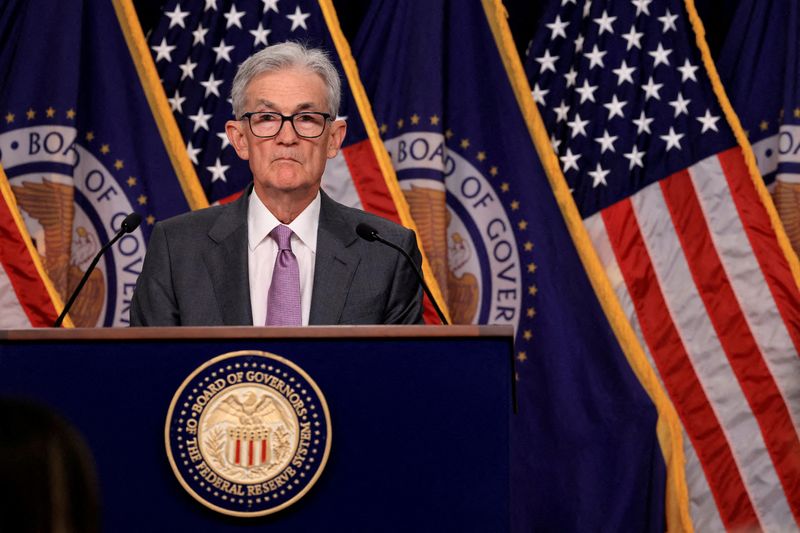By Alun John
LONDON (Reuters) - Market expectations of substantial U.S. rate cuts this year are making short-dated debt unattractive as the Federal Reserve is unlikely to be as aggressive in easing monetary policy, said Deborah Cunningham, a money market fund manager for Federated Hermes (NYSE:FHI), on Tuesday.
The Fed delivers its decision on policy on Wednesday and is all but certain to cut interest rates from their 23-year high.
Investors currently think it more likely to begin with a 50-basis-point cut than with a 25-basis-point one and are pricing around 120 bps of cuts across the three meetings by year end.
Federated Hermes, in contrast, expects a 25-bp cut on Wednesday and two more such cuts by year end, Cunningham said.
"Short term (U.S.) paper at this point looks unattractive," Cunningham, chief investment officer for global liquidity markets, told reporters.
"The best strategy in the short term is to invest in the longer end of our yield curve - out to 13 months - but it is hard to do that when you're looking at a yield curve that at the short end is expecting way more (cuts) than we are."
Cunningham's view differs from market pricing "because there are quite a few market participants that expect a recession, which is not our expectation."
Money market funds are mutual funds that invest in very liquid short-term debt products issued by governments or highly rated companies.
Companies and investors have traditionally seen them as safe places to park cash, but poured funds into this asset class as central banks raised rates, taking advantage of the higher returns on offer.
Retail investors too have got in on the act and in total, $6.3 trillion is currently invested in U.S. money market funds, according to data from the Investment Company Institute.
The yield on a three-month Treasury bill has fallen around 56 bps in the last three months. There has been a full percentage point decline in two-year yields in that time.

Cunningham said there were more opportunities to invest in short-dated government bonds in Britain, where markets are pricing fewer rate cuts than in the U.S., as well as short-dated tranches of asset-backed securities, which had been unattractive when rates were rising.
Other asset managers are watching to see whether money flows out of money market funds as interest rates fall, but Cunningham said low interest rates on bank accounts meant she saw them continuing to attract inflows and that assets under management would peak over $7 trillion.